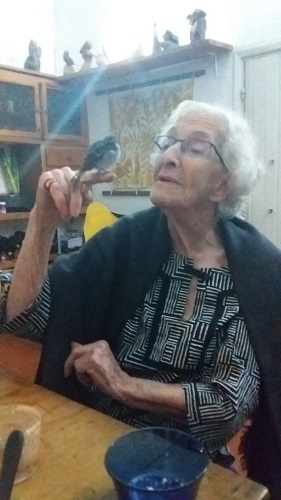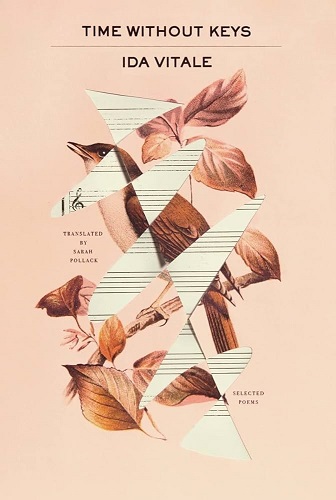How few are the things
this hushed world has,
beyond my own Things.
There’s that sun setting fire
to the neighboring walls,
the electric lines,
which doesn’t enter here because
what would the poor
brim of my hat think,
never leaving its wall
after losing its crown,
and that I take to be the Ellipse?
And the cloth flowers,
which once painted, dreamed
of being fresh and beautiful,
and survive, wilted,
what would you say, my eternal ones?
My ochres, lilacs, rosy pinks,
my marbles skewed
by shadows that interweave
with my divining lines,
exist, in their motionless realm.
The sun doesn’t matter, outside.
May Bologna
and burning bricks suffice
and in mere light and shadow
leave me among my Things.
We’ll meet again
if in the small park
I paint and think about Corot.
I’ll be fainter still:
in faint watercolors,
my last, that require
the passage of forms
through the mist
to be color enough.
I’ll paint a mandolin
to accompany the dance
of my dispositions
with each other and their shadows,
with lights and lines
that subtly embrace
my beloved objects.
And then all Bologna
will turn a gentlerose
with no suspicion
of the inevitable ennui,
very nineteenth-century, indeed,
of milkmaids and hayfields,
henhouses and skies.
Close to my sisters,
I will travel through my Things.
Un pintor reflexiona
Qué pocas cosas tiene
este callado mundo,
más allá de mis Cosas.
Está ese sol que incendia
las paredes vecinas,
los cables del tendido
y aquí no entra porque
¿qué pensaría el triste,
el alón del sombrero
que, perdida su copa,
ya no abandona el muro
y tengo por la Elipse?
Y las flores de trapo,
que pintadas soñaron
con ser frescas y hermosas
y sobreviven mustias,
¿qué dirían, mis eternas?
Mis ocres, lilas, rosas,
mis marfiles sesgados
por sombras que entretejen
mis líneas adivinas,
son, en su quieto reino.
No importa el sol, afuera.
Que le baste Bolonia
y el ladrillo ardoroso
y en mera luz y sombras
me deje entre mis Cosas.
Ya nos encontraremos
si en el pequeño parque,
pinto y pienso en Corot.
Voy a ser aún más leve:
en leves acuarelas
últimas, que precisen
el paso de las formas
por la bruma que sea
un color suficiente.
Pintaré un mandolino
que acompañe la danza
de mis disposiciones
entre sí con sus sombras,
con luces y con trazos
que sutiles abrazan
mis objetos amados.
Y ya toda Bolonia
será de un suaverrosa
sin presunción alguna,
sobre el hastío fatal
y sí, decimonónico,
de lecheras y henares,
gallineros y cielos.
Cerca de mis hermanas,
viajaré por mis Cosas.






